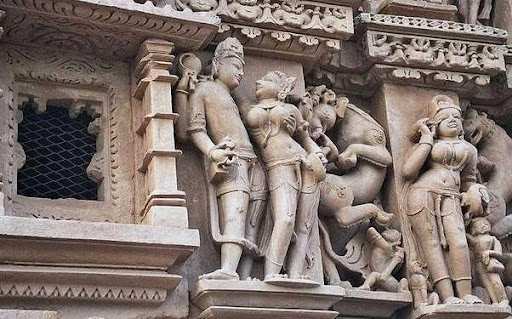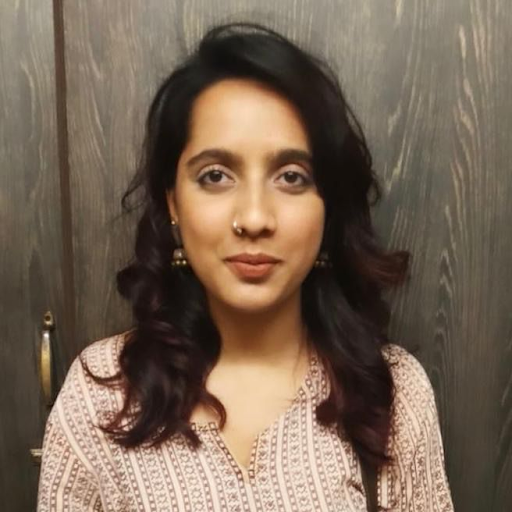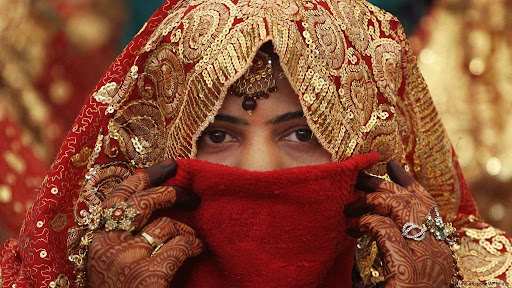Sacredly Sinful: Sexual Freedom and the Women in India

Mehak Walia in conversation with Apurupa Vatsalya, a sexuality educator and POSH trainer, on the trajectory of sexuality in Indian society.
Although the constitution of India grants men and women equal rights, gender disparity continues to exist in every aspect of our lives; from laws all the way to sexual freedom. Trying to undermine the sexuality of women and other gender minorities has been the norm in our nation for as long as we can possibly imagine.

We were able to get in contact with Apurupa Vatsalya (she/ they), who is a lawyer-turned-sexuality educator, POSH trainer, and the founder of Bibliotherapy—a safe space for healing through reading and psychoeducation. She has been researching, creating modules and teaching CSE workshops in addition to conceptualizing and facilitating courses that address themes of pleasure activism for women for over 4 years. Through her work, she aims to encourage and promote the ideology that we are all born free and it is our fundamental right to remain free in every aspect of life.
A Critical Question to Ponder: “How can we build the know-how of parents and educators regarding conversations on sexual health and pleasure with young people?

Our India Today
It is painful and ironic that the very land that gave birth to The Kama Sutra is now home to awful, derogatory, and discriminatory sexual beliefs. Thankfully, times are slowly changing and small, yet significant changes can be seen occurring, slowly but steadily.
“Intersectionality helps us understand and recognize that there are people with more and less privilege within marginalized groups. Oppression (and freedom) are compounded based on our privilege. Sure, in a certain slice of society—your upper caste, upper class, able-bodied women (and so on), there is a positive change. But even within this group we see a weaponization of sexual freedom. Most of us have experienced slut shaming (for being ‘too liberated’) and prude shaming (for being ‘too regressive’),” Apurupa comments.
[Women] continue to be treated as second-class citizens and we continue to carry our gender as a burden.
She adds, “True freedom would be when choices aren’t policed and are honoured as an individual’s expression of their sexuality. Having said this, what is truly marvellous is how women and gender diverse folks continue to take up space, resist, fight and demand for this freedom in big and small ways. For instance, I’d argue that influencer culture wherein largely womenfolk use their sexuality and sexual expression to build their personal brand and businesses as a way for us to take this power and agency back. Therefore, it isn’t surprising to me that it gets a bad rep.”
Unfortunately, women taking charge of their own sexuality is still considered a ‘western’ concept and therefore, it’s shunned and considered a sin. This probably dates to times when women were considered the second sex and treated like baby-producing machines.
The Historical Status of Women in Our Country
For centuries now, there has been anxiety around women’s bodies targeted as metaphors for nation, family, or community, where they not only signify honour but also purity and piousness. Women have always been taught that they belong in the kitchen and well-covered behind ghungats, burqas and drapes.

Women have long been considered as the secondary gender, conditioned to behave so as well from the very beginning. It is as Simone de Beauvoir wrote: “Representation of the world, like the world itself, is the work of men; they describe it from their own point of view, which they confuse with absolute truth.”
Apurupa work contests these ideologies by working at the intersections of gender, sexuality, safety, body neutrality, and identity. Commenting about the interplay with emotional well-being and social justice, she says, “The historic treatment towards women is violent and dehumanizing and we are owed reparations. We also continue to be treated as second-class citizens and we continue to carry our gender as a burden. In our English-speaking, college-educated, urban circles we tend to say things have gotten better because we see so many strong, successful, and articulate women around us. That is selection bias, which occurs when we make a generalization based on an observation of a homogenous group as opposed to random selection. We must ask ourselves who are these women and what are their identities? And what about women who aren’t as privileged?”
She further adds, “What this does when it comes to a person’s sexuality is that it disallows them autonomy over their own bodies, identities and expressions. It also enforces gender roles and compulsory heterosexuality. Our fight for sexual liberation forms a part of our fight against patriarchy and a resistance which benefits ALL women and gender diverse folks. To paraphrase Audre Lorde, we are not truly free while others continue to remain unfree.”

A Sexually Free and Equal Future
Apurupa expresses, “We are all born free, and it is our fundamental right to remain free—in expression, association, individual freedom and freedom to lead lives of dignity. Sexuality (not to be confused with sex) is a part of our personhood and as long as there are 5 Cs – consent, communication, comfort, care and access to contraception, there’s no space for control or censorship.”
Close the Gap!
“We need more nuanced conversations when it comes female sexual liberation that needs to move beyond how it will benefit men. What I mean to say is—close the orgasm gap because the orgasm gap should not exist. Period.”

A sexually free future would ensure that everyone is happy, satisfied, and well-adjusted. Such a world would be kind, carefree and probably even more safe than the world that we live in.
Apurupa smiles, “Such a world, it would look VERY different for different people, and it would be safe (in every sense of the word). I cannot and should not give you a universal definition of such a world; I personally envision it to be inclusive, diverse, and celebratory, not just accepting or tolerating of differences. In such a utopia, education wouldn’t mean book-ish knowledge or fancy degrees, it would mean curiosity and space for dissent. A person’s sexuality doesn’t operate in a silo or in isolation. For it to be a sexually equal and free world, it would first and foremost have to be an equal and free world.”

Yes, we can. However, seeing the kind of world that we live in, it would take serious efforts to make the same possible. For those who try, a lot of challenges await them on their journey towards educating people.
A person’s sexuality doesn’t operate in a silo or in isolation.
“I’ve been working in the field of Sexual and Reproductive Health and Rights for nearly five years. While there are many cultural, structural, and logistical challenges to being a sexuality educator in India, the toughest of the lot has been a personal challenge of not having a career script since it is an ‘offbeat’ path. Most people don’t understand nor respect what I do—they think I teach kids how to have sex—and some don’t take my expertise seriously because I’m young, female, unmarried and have visible tattoos,” Apurupa explain with a sigh
.She further elaborates, “The other challenge is how to invite all stakeholders into the conversation that doesn’t feel threatening to them, their religious and their cultural beliefs and is instead liberating and meets them where they are at, as opposed to imposing my understanding of it onto them. For example, how can we build the know-how of parents and educators regarding conversations on sexual health and pleasure with young people? How can we enable them to challenge their own biases and include them in these narratives, to bring about a cultural and behavioural change with respect to how we view sexuality, identity, pleasure and agency?”
We need to start somewhere, make changes in what we teach our children, include sex education in our educational patterns and start building a more open and healthy conversation about sex.
Let’s understand the fact that pleasure is a necessity and not something to be ashamed of, hidden and buried away in the pages of history. We, as a society, can together build a future based on acceptance that is equal and fair for everyone, without any differentiation, bias and judgement.
Ad



